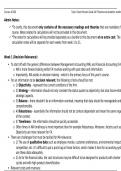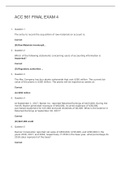Lecture notes
AC206 LSE Exam Notes
- Module
- AC206 (AC206)
- Institution
- London School Of Economics (LSE)
truggling with AC206? Get high-quality, exam-focused notes covering all readings, weekly lecture content, and key concepts in one place. These notes provide clear, structured summaries of essential topics, helping you revise efficiently and boost your grades. Complete reading summaries – Save...
[Show more]





